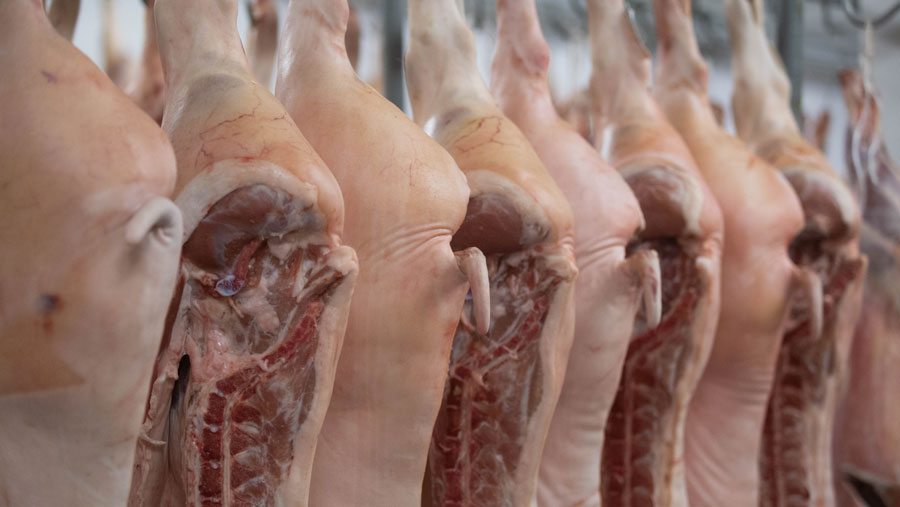New border controls to disrupt meat supplies, warn traders
 © Tim Scrivener
© Tim Scrivener Meat traders are warning of possible disruption to supplies in the coming days and weeks, as EU operators struggle to get to grips with the requirements of the UK government’s new Border Target Operating Model.
The new controls are due to take effect from Wednesday 31 January and will require EU exporters who ship meat and other “medium-risk” products of animal origin (including dairy and eggs) to obtain an export health certificate (EHC), signed by an EU vet, before dispatch.
See also: Defra to slash budget for smuggled meat checks at Dover
This seven-page document will verify that the consignment has been checked and comes from disease-free animals.
There will also be a requirement to pre-notify GB customs of any impending shipment at least 24 hours before arrival.
Lack of vets
The British Meat Processors Association (BMPA) says there is a worrying lack of preparedness by EU exporters that could shock the food supply chain, given that GB relies on imports for 22% of its beef, 21% of its sheepmeat and almost 50% of its pork – most of which comes from the EU.
According to the BMPA, there is a lack of veterinary capacity in many EU exporting countries to sign the EHCs.
Also, since Brexit, the UK’s EHCs are worded differently and no longer match EU legislation exactly, which may make EU vets reluctant to sign them.
“Put bluntly, if the vets aren’t able to sign off the documentation, consignments of meat may not even leave the factory, let alone get to a UK border control post,” said a BMPA spokesman.
“And even if vets can sign them off, many smaller EU suppliers will simply stop exporting to the UK due to the extra bureaucracy and the loss of the ability to send small consignments in grouped loads.”
The requirement for a 24-hour pre-notification may also cause hold-ups, or deter suppliers from trading at all.
However, the BMPA also notes that the government has said it will still let medium-risk products through, even if the paperwork is not in order, until the full Border Target Operating Model – including physical inspections – is in place from 30 April.
Fruit and veg
It is not just meat and dairy imports that could struggle with the new border arrangements.
Within the past week, Defra has reclassified some fruit and vegetables to make them medium risk, which means they too will require pre-notification and phytosanitary certificates.
Beetroot, radish, carrots, swede and berries are among the affected food items, though the new rules will not take effect until 31 October 2024.
Nigel Jenney, the Fresh Produce Consortium’s chief executive, described the change – which was made quite unexpectedly – as a “severe blow to the industry”.
He also lamented the fact that future inspections of imports will take place at the new border control post at Sevington, 20 miles inland from Dover, which was “inadequate” for perishable products.
And ending the ability for smaller operators to combine their shipments would hit many trading businesses, given that 65% of all EU vegetable imports depend on such groupage.
“For years, we have proposed viable solutions that are only now receiving government consideration,” said Mr Jenney.
“It is imperative to establish cost-effective inspection solutions for SMEs, groupage of consignments, and fast-track approval for responsible companies to conduct their own official inspections.”
